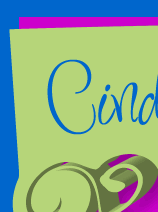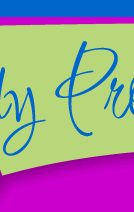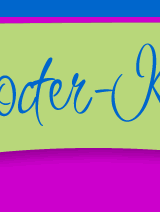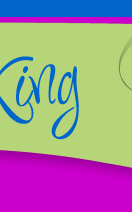Elaine: I am blessed to be in a job where I get to do something different every day. In addition to handling our submissions and agenting, I also handle all of our foreign sales and many other co-agenting responsibilities with agency clients beyond my personal list.
The Knight Agency has blossomed in the past five years, adding a full-time marketing staff as well as a full-time office manager and two additional agents. As we continue to grow, each of our individual responsibilities continue to evolve so that we are able to constantly provide our clients with the best services available. Within the next several months we have planned to sign on an additional employee who will help me with some of my submission and foreign tasks, allowing me to further expand my growing client list.
Cindy: Sounds fantastic—and promising! Elaine, please describe your typical day at The Knight Agency.
Elaine: Typical, hah! That's one of the great things about my job. I don't have a typical day. Some days I spend the majority of the day reading unsolicited material, queries, submissions etc. We get over 50 queries a day, so it's imperative that we stay on top of these issues.
Some days we spend researching and emailing editors finding out about what is going on in the market, what people are looking for, etc.
Other days I am emailing clients and working with their manuscripts and promo issues, or possibly gathering material to expand foreign appeal. I might be talking to their editors about deadlines, contract issues, etc.
The list goes on and on. Usually I sit down at my desk around 8:30 a.m. and am fully immersed in some task by 9:30. I pack up my computer around 5 and head home. Many nights I get home and pick up right where I left off. Authors don't work 9-5, and so in most instances we don't either.
One of the great perks in my job is the flexibility. Some days I find that I am able to get more done at 9 at night than I was at 9 in the morning. It is also a great feeling to know that I answered a client's question long before they ever expected a response. At the end of the day we are working for you, so I do whatever it takes to get that job done.
Cindy: Okay, I'm exhausted just reading this. On the other hand, I bet you're never bored! What do you love most about your job?
Elaine: Hands down, the people. I work in an office with a group of individuals who have become like family. We all support each other in each of our professional and personal endeavors, and it makes the day so fun and satisfying.
Beyond my amazing co-workers, I have been introduced to a phenomenal group of authors represented by The Knight Agency. The people that we represent are not just "clients," they are individuals we want to see succeed at their highest potential. It is the most rewarding experience to be with these authors as they hit new unchartered territories.
Also, I am currently in an intensive conference schedule. I am getting to travel the country and meet tons of fabulous authors who make up the writing community. Everywhere I go the people are so enthusiastic about what we do. It's a constant reminder of the joy that our work creates.
Cindy: How does the TKA submission process work? Do you as the Submissions Coordinator decide which query goes to which agent? What if a writer wants to query a specific agent at TKA? Is that allowed?
Elaine: As the submissions coordinator I usually get the first look at queries and I "farm" them out to our other agents. Due to our relationships within the agency, I am familiar with who likes what elements in different projects. The agency's four individual agents all have very distinctive preferences.
In other instances, if it is a project with mass appeal we work as a team to figure out which agent would be able to offer the individual the attention they most need in their career. The Agent/Client relationship is very personal, and we try to figure out what bonds we can build that will leave everyone involved the most satisfied.
Usually the only way that querying specific agents is encouraged is if you have met a specific agent. That or if you are coming in as a referral through an already established client. Our agents don't typically reply to unsolicited queries targeted at individual mailboxes because in most instances we find that the individual has sent an identical email to the entire team.
Cindy: Is the TKA submission process entirely electronic? Do you accept paper queries or only e-queries? What if the query gets to the partial or full request stage?
Elaine: Our Submission process is entirely electronic at this point in time. About five years ago with the internet age upon us we learned that the organizational benefits of accepting only e-queries and submissions can not be beat. For the most part, we all read partials and fulls via an electronic version as well. This also makes sense, because we have them wherever we are, whether it be traveling or at home or at the office. Plus we have the entire record of the submission exchange right there at our fingertips.
Cindy: How many writers are currently in your stable? How many clients would you eventually like to represent? Do you represent clients on your own or do you work with a senior agent?
Elaine: I have about a dozen authors I am currently representing. Eventually, as the workloads shift, I would hope to work with a group of 40-50. This number really will depend on the types of clients that fall into my care in the meantime.
Within the agency we all work with each other's clients. There are certain relationships that I harbor entirely on my own end, and there are others where we work as partner-agents. Regardless, each of the agents has a clue as to what is going on with the others' client lists. We constantly compare notes and seek each other out for advice and suggestions.
I'm young and hungry. I have the energy and the drive to keep my numbers climbing. One major perk that I bring to the table is that I have the time to devote undivided attention to my clients. I am much more hands-on than some of our other agents just because my schedule allows it.
Cindy: So, what stands out for you in a query? Can you give us any query Do's and Don'ts?
Elaine: With a query, I want the whole package. I want someone who has obviously done their research and presents an idea that we are interested in. I also want them to show me that they are serious about their career and so they have taken the time to look at the many sources out there that help develop a quality query.
I want to see an author's focus. They should be able to sell me their story in a line or two and then keep me reading by providing an entertaining summary. If I am bored by the story after reading a one-page query, you can bet I'm not going to be encouraged to request a partial.
Again, I look at a lot of these everyday. The trick is finding a way to make yours stand out right away without crossing over into the unaccepted practice realm. It can be done. Just focus on preparing a quality product in the query letter itself.
Don't tell me you are the next Nora Roberts. Or that you have the next DaVinci Code. I'm not interested in finding the self-declared next NY Times Bestseller. Also, I am not more inclined to take a look at your work if I have rejected it and you respond with, "You don't have a clue what you are missing." Also, please don't query all 13 of your completed manuscripts at once. Sell me one, and if I'm interested I'll ask about the remaining 12 on my own terms.
Cindy: What are your genres and sub-genres of interest? Do you specialize in certain areas?
Elaine: Being that my client list is still pretty open, my areas of interest are wide! I currently am looking for all genres of women's fiction and romance. (Romantic suspense, inspirational, contemporary, paranormal, multi-cultural, mainstream etc.).
I am also looking for some strong Literary Fiction. Due to my intense studies of the written word, I love reading works of elegantly presented dialogue.
I am also looking for lots of young adult titles. I have an interest in anything from the middle-grade level up to the "cusp" early twenty-something crowd. I am looking for titles that are sharp, witty, on-target, and high concept.
And, as if that's not enough, I would love to find a great mystery or thriller series. OK, fine, you caught me, I'll take both.
Cindy: That is a great range. Approximately how long does it take you to review a requested partial, then? How about a requested full?
Elaine: This all depends on workload and travel schedules. If it is something we are really excited about, we will typically look at it immediately. We try not to hold anything over ninety days, but in all honesty sometimes that's just not possible.
If we love something enough to request a full, it will most likely be read right away as well. If we are to that point, we are very serious about the project and getting the client on board.
Cindy: Describe your dream client. And your nightmare client!
Elaine: My dream client is someone who is enthusiastic and considerate. I want someone who is eager to let me help them. I want a client that takes their work seriously and is willing to give each project they present to 100%. I want someone who is thoughtful of my time and effort. I want someone who wants to get it right every time. Even if they don't, I want to know that they tried.
The first and most major thing that a client can do is have unrealistic expectations. This is not the same thing as being naïve to the market. There is only so much that I can do. It's heartbreaking when a client thinks that you could have done more when you explain that you have tried every avenue. So, yeah, that's the number one turn-off.
Cindy: Describe your preferred methods of client communication. Email or phone contact? How long does it generally take you to get back to a client, and how often is too often for a client to pester, um, contact you?
Elaine: We are all E-mail-aholics. If I'm not at my computer, I have my Blackberry glued to my side. I usually try to get back to my clients the instant that I can, within that day in 95% of the instances.
To fairly answer this question, though, one must realize the level of the question that is being asked. If it's a simple you-need-to-know-something, most likely the answer will be instantaneous. In other instances, if they are serious in-depth career questions, or questions about content and such, it may take a bit longer.
As to the "pestering" factor, it is such a personal relationship that my clients all differ. Some people I talk to daily, some only need me monthly. Sometimes some are so quiet I have to send them a "Hey, you doing ok out there?!" It all depends on where the author is in their career, in their writing process, and other extenuating circumstances. If they are pestering me, they typically know it, and it's usually for some reason that neither party can help.
Cindy: Do you offer editorial advice to your clients? How much? What if the client doesn't agree with the advice?
Elaine: Yes, I do. I talk to my clients up front about this. I don't try to act as their editor, but I review and offer up opinions from myself not only as an outside reader, but also as someone who reads a lot, and knows what will and won't work in the market.
I never force an author to change something they aren't comfortable with, but in most cases the extra critique is highly valued. We are all working to simply get the best product out there.
If the client doesn't agree with the advice, we talk about why and usually one of us is able to see the light as to what the issue at hand is.
Cindy: When you take on a client, is it for the work in question or for the duration of the client's career?
Elaine: We hope that it is for the duration of the client's career. However, the way that our agreement is worded, if either party isn't happy with the work that the other is doing either are free to walk away at any point.
We hope that we can build longstanding relationships. Like I said, these aren't just clients, they
become friends, and we want to do everything we can to get them to the highest level of performance.
Cindy: How do you work with a client to build their career?
Elaine: Extensively. This is the #1 goal beyond getting them published. We work to build a strategy to increase their fan base and exposure. Our marketing department helps them focus on their different publicity opportunities, whether it is via web exposure, chats, newsletters, e-groups, etc. We also try to help in any way possible with "live" events such as signings and appearances. Depending on the level of the author's career, we will help them work with the publisher's marketing department and/or their own individual PR rep if applicable.
Again, this works into our overall goal of growing the author. We work to get them writing in as many arenas and for as many readers as possible when the opportunities arise. Many of our clients are contracted with different houses on different projects.
Cindy: Given your response, I have a feeling I already know your answer to this next question, but I'll ask it anyway. :) How do you feel about writers writing in more than one genre or sub-genre?
Elaine: I don't have any problem with it. I want an author to be excited about what they are writing, and if that means that they go between several different genres and voices, fine by me.
We do, however, make sure that the author is giving each entity their all. Sometimes an author will get so excited about all their different ideas that they seem to get lost. We pull them back in and get them to focus on the one project and fully developing it before tackling a different one.
Cindy: How many editors do you send a project to at once? Would you send a writer's project to editors on its own or along with other writers' projects?
Elaine: This depends on the project. There are certain genres where there are simply more avenues to submit to. Usually our initial send-out goes to about 10 or so editors.
I submit each individual's project separately. I want to create excitement about that title, and don't want it to get lost in another separate author's work.
Cindy: How do you handle rejections for your clients? Do you forward each rejection letter or save them until you have a batch and then notify the writer?
Elaine: I forward them in their entirety onto the author the instant I get them. It can be a discouraging process, but I think in the end the author values knowing exactly where they stand at every moment.
I also let the author know exactly where their project is going and who to, after all this is their baby. I don't see any benefit in keeping them in the dark.
Cindy: Do you use a written or verbal contract with your clients?
Elaine: We have a standard written contract. As previously mentioned, it is entirely open-ended for both parties. There is no termination warning time-length, and the agreement only covers the projects which we have already sold.
Cindy: How about if a client wants to part company? How would you like them to handle it? What would you like them not to do?
Elaine: We hope that we have opened the lines of communication and they have let us know why they are unhappy. In most cases, when clients are parting ways both parties are unhappy and have a sense that a split is coming.
The most important thing is communication. We hope that they will come to us before it gets to that point so that we can fix any problems they are having with us.
If parting ways, we hope that a mutual respect can be maintained. As long as the client offers us that hospitality, we will do the same. In most instances it is just that the involved parties aren't at the same place and we still wish them nothing but the best in their future writing career.
Cindy: Conversely and generally speaking, about how long would you stay with a client before deciding that the relationship is perhaps not working? How would you handle severing ties if it's your choice and not the writer's?
Elaine: This isn't something we really have to deal with that much. There isn't really a protocol. We try to let the client know why it isn't working and, conversely, to the above answer, let them know in advance what isn't working for us.
From there, it is all a case by case situation.
Cindy: If you reject a partial or full manuscript, are you open to seeing a query on a revised version of the story?
Elaine: This depends on the reason that we rejected it. If we rejected it because the core of the story wasn't developed enough, or if we just thought that the writing needed some additional tweaking, we would love to see it again.
In the opposite case, there are certain situations where we just don't care for the voice, or the project ends up being very similar to something else we are shopping. In these cases we most likely are passing based on reasons that can't be altered.
Regardless, each rejection is personal. There is a typical form response we use as a guideline, but there are personal comments. If the rejection says we want to hear from you again, WE WANT TO HEAR FROM YOU AGAIN!
Cindy: That's good to hear. So many times inexperienced writers mistakenly believe that if an agent or agency says no to one project, that's it. Finito.
Okay, on to the personal tidbits. What are your favorite movies? TV shows? Favorite authors? What do you like to read in your time off?
Elaine: Ooohh, the fun questions. Let's see. I am addicted to Grey's Anatomy. Prison Break and CSI reruns are a close second. Other than that, the only thing I really pay attention to is the news. I know it's a little twisted, but I find news anchors' voices soothing. As to movies, I am pretty open. About the only thing I don't do is "stupid comedy." I want something clever. Favorites: Kiss the Girls, Primal Fear, Mean Girls, and the always cliché but still fabulous, Pretty Woman.
As to books, that's the most difficult question I get asked. My favorite author is Jodi Picoult. I make it a priority to read her new releases immediately. Other than that, it depends on what is going on in my life. I try to read our agency titles, the titles of people that I am meeting or have just met. Titles that people in my life have said are fabulous or titles that just are the "big" thing at the bookstores. I can say that my TBR pile will never really be tackled and is always changing. I read a lot. Somehow I manage about one a week, which I think is pretty impressive due to the fact that I constantly am reading something for a client as well.
Cindy: I think it's pretty impressive, too. After working with words all day, sometimes it's difficult to relax with them, so it's good to hear. Any other hobbies you'd like to share?
Elaine: I am an avid shopper. I am also a food junkie. I love cooking and going out to great meals in new places. I love to travel, and in the fall on any given Saturday afternoon you can bet I am cheering on my beloved Georgia Bulldawgs in Sanford Stadium.
Cindy: I am totally useless when it comes to sports, so please forgive me when I say that I have no clue what sport the Bulldawgs play (well, I can also claim my ignorance on the fact that I'm not American--phew!).
Elaine, to finish off, what's the best advice you can offer aspiring authors?
Elaine: Don't give up. The business is always changing, and there are a million ways and different opportunities to grow your writing and your stories.
Also I think networking is crucial. Get out there and meet people. Join writers' groups, find quality critique partners, and attend conferences. These things all promote you as an author and will make it easier for you to get your hands into the right people.
Beyond everything, remember the reasons that you started writing. It was fun, you enjoyed it. If you ever get to a point where that isn't the case, stop and do some major soul searching. If you don't, your writing will show it.
Cindy: Thanks, Elaine, for a candid and informative interview!
For more information on Elaine Spencer and The Knight Agency, please visit their comprehensive website or their blog.
©Cindy Procter-King, February 2007
|







